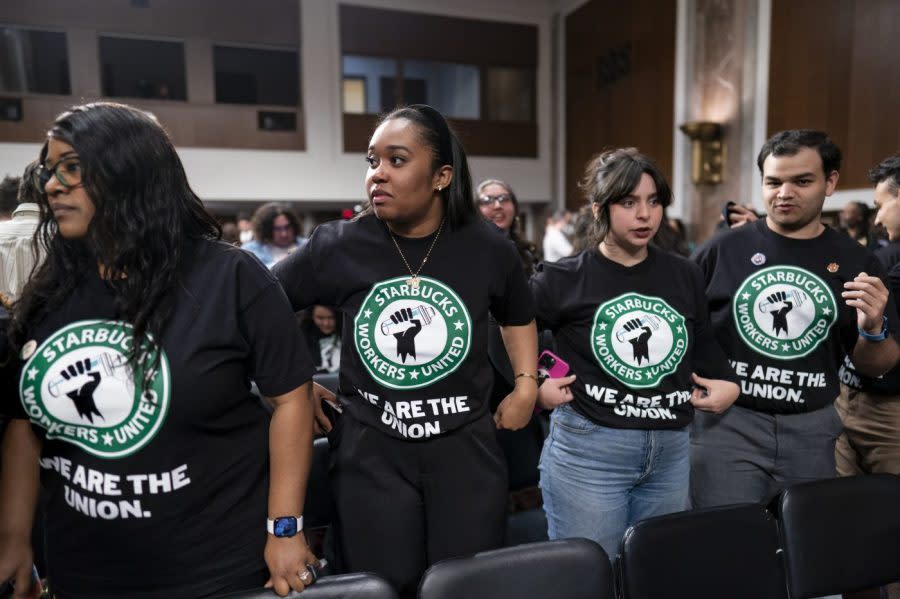Supreme Court rules for Starbucks in union case over terminated employees

The Supreme Court on Thursday tossed a lower court’s ruling ordering Starbucks to reinstate seven Memphis-based employees terminated amid a unionization drive.
The decision makes it more difficult to immediately block alleged unfair labor practices as they are litigated in a sometimes years-long administrative process. Justice Clarence Thomas wrote the majority opinion on behalf of eight justices, while Justice Ketanji Brown Jackson partially dissented.
The case arose from the “Memphis Seven,” seven Starbucks employees who were terminated from the coffee giant in 2022 during a unionization effort. They had publicly posted a letter addressed to the company’s CEO and sat down in the store with a television news crew to discuss the organizing efforts.
Starbucks said it lawfully terminated the employees for breaking the company’s policies the day of the television interview, including by going behind the counter while off-duty and unlocking a door to allow an unauthorized person to enter the store.
Lower courts had split on the standard for when to issue the so-called “10(j) injunctions,” which can force companies to reinstate employees, keep facilities open and pause corporate policy changes as the National Labor Relations Board (NLRB) processes complaints against them.
The Supreme Court’s ruling rejects a more lenient test leveraged when requiring Starbucks to reinstate the seven employees, instead demanding courts use a more stringent, four-factor test applied in other contexts.
“Nothing in §10(j) displaces the presumption that those traditional principles govern,” Thomas wrote in his majority opinion. “We therefore conclude that district courts must use the traditional four-part test when evaluating the Board’s request for a preliminary injunction under §10(j).”
The NLRB only seeks the temporary injunctions in a handful of cases each year, but the ruling now raises the bar for the burden that must be cleared when going to court to seek such an order.
Jackson agreed the lower ruling should be wiped but dissented in part and said the majority was “ignoring the choices Congress has made” when establishing the NLRB.
“I am loath to bless this aggrandizement of judicial power where Congress has so plainly limited the discretion of the courts, and where it so clearly intends for the expert agency it has created to make the primary determinations about both merits and process,” Jackson wrote.
In a statement, the Starbucks union called the Supreme Court’s ruling “egregious.”
“Working people have so few tools to protect and defend themselves when their employers break the law. That makes today’s ruling by the Supreme Court particularly egregious. It underscores how the economy is rigged against working people all the way up to the Supreme Court,” said Lynne Fox, president of Workers United, which represents unionized Starbucks workers at hundreds of stores.
The NLRB declined to comment on the Supreme Court’s ruling, but in April, its general counsel said the differences between the tests “are terminology, not substantive” and that the board has been successful using either.
Starbucks said in a statement it would continue to work toward reaching a ratified contract amid the ruling.
“Partners are the core of our business, and we are committed to providing everyone who wears the green apron a bridge to a better future,” Starbucks said in a statement. “We will continue to focus making progress toward our goal of reaching ratified contracts for represented stores this year. Consistent federal standards are important in ensuring that employees know their rights and consistent labor practices are upheld no matter where in the country they work and live.”
Updated at 12:17 p.m. ET
Copyright 2024 Nexstar Media, Inc. All rights reserved. This material may not be published, broadcast, rewritten, or redistributed.
For the latest news, weather, sports, and streaming video, head to The Hill.

 Yahoo News
Yahoo News 
